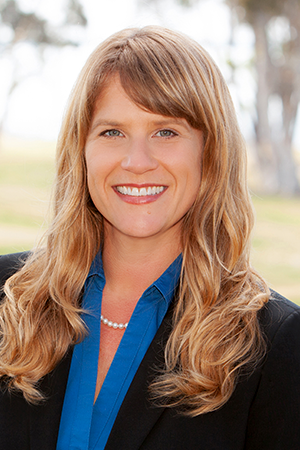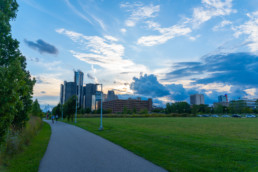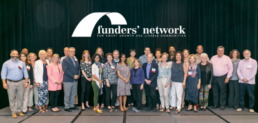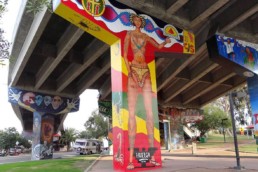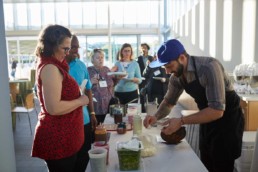Paths to Healing: Greenways are essential in the COVID era
BY John Mitterholzer, The George Gund Foundation
and Tom Woiwode, the Community Foundation for Southeast Michigan
The Covid-19 pandemic crisis presents one of the biggest challenges our nation has faced. Not only are we grappling with a public health emergency and a faltering economy, but these twin crises have laid bare stark inequities in our communities. It has forced us to acknowledge what has been obvious for far too long — that we do not all enjoy the same opportunities, whether it’s economic equality, access to a healthy environment, or opportunities for social or cultural experiences. It has required us to think differently about how we live, work and play. And it is mandating that we create communities that bring people together to enjoy in those shared opportunities equally and equitably.
So what are our options? In this time of unprecedented challenges, the public has given us some pretty strong clues. When people are looking for solace, respite, an opportunity to get out and socialize, where have they gone? Trails, greenways, parks, public spaces. In droves. In volumes and numbers never seen before. The Rails-to-Trails Conservancy reports a surge of as much as 200 percent in trail use nationwide. In fact, the demand for access to places to walk or bike has prompted cities around the country — including Boston, Milwaukee, Chicago, Denver, and Washington, D.C. — to close streets to vehicle traffic and open them up to pedestrians and bikers. Oakland has dedicated 74 miles of streets to non-motorized use.
The uptick in activity is not surprising, given the legions of people who have felt trapped inside their homes as cities across the country have restricted access to most everyday activities. But the potential benefits of these outdoor spaces go beyond just offering a place for a pent-up population to stretch their legs. It’s not uncommon to think of trails and greenways as designed for recreation experiences. But they are so much more.
Greenways create economic opportunity. According to a 2012 study by The American Association of State Highway Transportation Officials (AASHTO) study, every $1 million invested in greenways, bike lanes and sidewalks, creates 17 jobs — significantly more than any other kind of infrastructure project. A 2019 study for the East Coast Greenway Alliance showed a more than ten-fold return on the impact of greenways investment.
They provide health benefits. While walking, running and bicycling can be enjoyable health preventative measures, the benefits don’t just stop at health care cost savings. Physical activity also increases workplace productivity, and people using trails enjoy an intangible boost to their overall well-being.
Trails and greenways help improve air and water quality. They take cars off the road, and, by protecting land along rivers and streams, greenways prevent soil erosion and filter pollution.
They improve access to mobility and transportation options. Greenways offer transportation options for those who would like a choice other than a car, or who need that choice because they don’t have other transportation options. In cities like ours, Detroit and Cleveland, roughly one-third of the resident population does not have access to a personal vehicle, in communities with limited public transportation options. Greenways link people and institutions, community assets, neighborhoods and each other in ways that are much more personal and connected.
And one cannot ignore the public voices being raised right now. In order to reap the full benefits of these public spaces, we need to be mindful of creating spaces where everyone feels welcome — and ensure that resources and access are equitably distributed. Creating communities that are sustainable, prosperous and just, a key element of The Funders Network’s mission, means acknowledging and undoing the racialized histories of our built environments that have allowed inequities to thrive.
It is essential that we create communities that serve everyone, equitably. That means we need to rethink how communities are designed, how they function, and we need to ensure that all people benefit from community assets and resources. The outdoors, and outdoor experiences, should be safe and enjoyable for all people, including people of color. We must design communities so they serve people — all people. Greenways help in doing that.
So why raise this issue now? Greenways and trails may be the best examples around of really effective public-private partnerships. TFN members have been leading the way in developing truly transformative projects that are changing the way their communities engage their residents. They include:
*The William Penn Foundation has been the driving force behind greater Philadelphia’s 300-miles-and-growing Circuit Trails;
*The Hyde Family Foundation is helping to connect Memphis to its neighboring communities along the Wolf River Greenway;
*Thanks to the leadership of the Walton Family Foundation, the 36-mile Razorback Regional Greenway links Bentonville to Fayetteville and all the communities in northwest Arkansas.
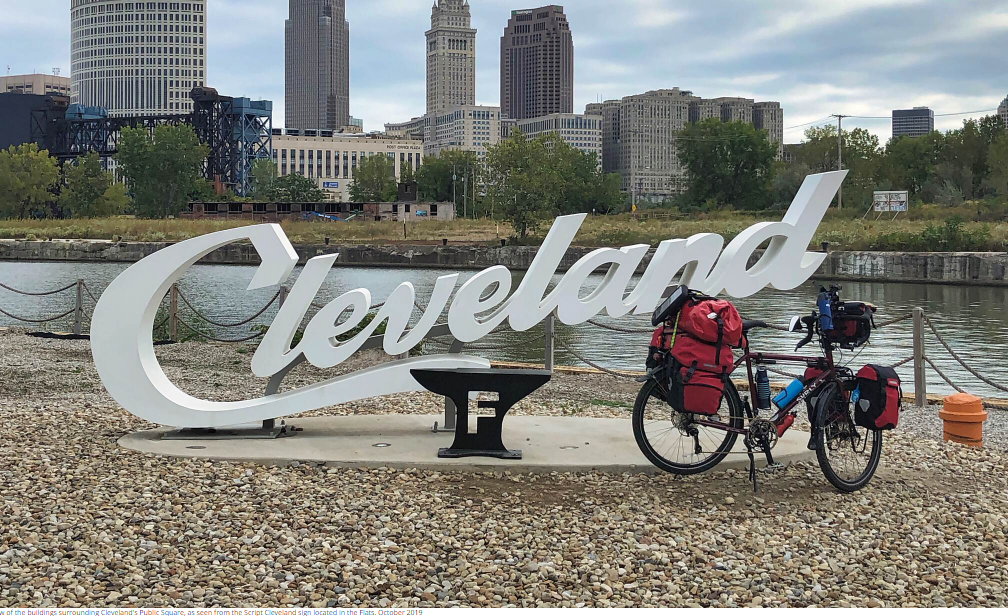
And in our own communities in Michigan and Ohio:
*A philanthropic partnership that includes the Community Foundation for Southeast Michigan, The Kresge Foundation, the Ralph C. Wilson Jr. Foundation and other philanthropic partners are working together to build a 35-mile loop trail that will connect all the neighborhoods in Detroit, to each other and to the revitalized Detroit Riverfront..
*The Cleveland Foundation and The George Gund Foundation have worked with local partners to create the Lake Link Trail, a project that uses greenspace and trails to connect the Cuyahoga River to Lake Erie. The Lake Link Trail connects the oldest public housing development in the country, Lakeview Terrace, and a low-income senior housing complex, Riverview Terrace, to the lake.
There is one common theme here, and it is especially important at this particular time. These philanthropic resources and private investments complemented and leveraged public dollars to build the above-mentioned extraordinary trail networks, and so many more around the country. Because of what we’re seeing today regarding greenways — the overwhelming public demand, the extraordinary and varied community benefits, and this unique moment in time — trails and greenways must be considered essential infrastructure in any infrastructure stimulus bills.
What can you do?
Think differently about trails and greenways. See them as they are and can be — ways to promote equity, create art, stimulate the economy, protect the environment, create safe spaces for families and children, provide transportation options for all, and serve as transformative community development.
Take steps to ensure that trail and greenway projects do not exacerbate racial and economic disparities. Fund community organizations that are full participants in the decision-making processes. Community leaders, in particular people of color, must be authentically engaged in the policies, planning, design and development of trails and greenways.
Help make the case to Congress and spread the word. Greenways are essential infrastructure. Over 150 trail organizations and community development groups have signed on to a letter, asking Congress to include greenways in the next stimulus bill. Learn more about this effort by contacting Dennis Markatos-Soriano, president of the East Coast Greenway Alliance, at dennis@greenway.org. The text of the letter can be found here.
Join TFN’s Collaborative on Mobility and Access to learn more about creating mobility options that are environmentally beneficial, economically sound and equitable for all. (For more information, reach out to program lead Martha Roskowski at mailto:martha@furtherstrategies.com.)
We hope you join us in recognizing the many contributions of greenways, and in working toward communities that are greener and healthier — for all.
Yours for a greener, more equitable world.
About the Authors:
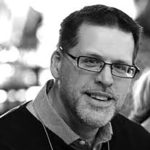
John Mitterholzer is a senior program officer at The George Gund Foundation. He served on TFN’s Board of Directors from 2009 to 2018, serving as chairperson from 2016 to 2018.

Tom Woiwode is with the Community Foundation for Southeast Michigan. He served on TFN’s Board of Directors from 2011 to 2020, serving as chairperson from 2018 to 2020.
Featured image photo credit: Jenishayoga | Dreamstime.com
ICYMI: Catch up on Inclusive Economies Reads
By TFN Staff
Looking to catch up on your reading?
In case you missed these posts earlier in the year, we featured three guest bloggers to reflect on key lessons and takeaways shared during TFN's Inclusive Economies inaugural meeting in the fall.
The Road to Good Jobs and Quality Work | Sara McCarthy, Director of Communications at the Fund for Our Economic Future.
Investment, Displacement & Engagement | Cari Morales, National Urban Fellow at the Cleveland Foundation
Awareness Building to More Thoughtful Action | Treye Johnson, Federal Reserve Bank of Cleveland

About Inclusive Economies
TFN’s Inclusive Economies working group brings place-based funders and related partners from across the sector together to build working relationships, advancing understanding of practices and policies that lead to inclusive prosperity, and taking joint action that drives the field forward. We apply a three-part focus — race, place and prosperity — to economic growth and development. A particular goal is connecting people and neighborhoods of color to employment and wealth-building opportunities through investment, systems change, and policy reform.
Inclusive Economies launched in 2019, replacing TFN’s Restoring Prosperity in Older Industrial Cities working group. This new group represents a vision of shared, restorative, and equitable prosperity in places of all types (urban, suburban, and rural), sizes (neighborhoods, cities, towns, and regions), and market conditions (weak, moderate, and strong).
For more information about TFN's Inclusive Economies, contact TFN President and CEO Pat Smith at pat@www.fundersnetwork.org.
Election Results: Meet New TFN Board Members & Officers
By Pat Smith, TFN President and CEO
We're excited to announce three new additions to our TFN Board of Directors: Michael Coffey, Eric Muschler and Karla Twedt-Ball.
Please join me in congratulating our newest members of the TFN Board of Directors, as well as welcoming back members who were up for reelection this voting cycle. Additional congrats to our board members who will be serving as board officers, including our new Board Chairman Craig Martinez.

TFN Board of Directors Class of 2020-2022 and Board Officers
At a meeting held Jan. 24, 2020, in Miami Beach, Fla., TFN’s Board of Directors approved the following slate for the class of 2020-2022 and recommended a vote in favor of election. TFN members cast ballots in March approving the 2020-2022 slate. (Our board serves staggered terms, so not everyone is up for reelection at the same time.)
Please note that Michael Coffey, Eric Muschler and Karla Twedt-Ball are being elected to their first terms of office. The remainder pictured below are current directors whose terms of office were renewed during this voting cycle.
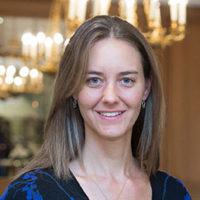
Jessica Boehland
Senior Program Officer, The Kresge Foundation
(Renewed for 2020-2022 term.)
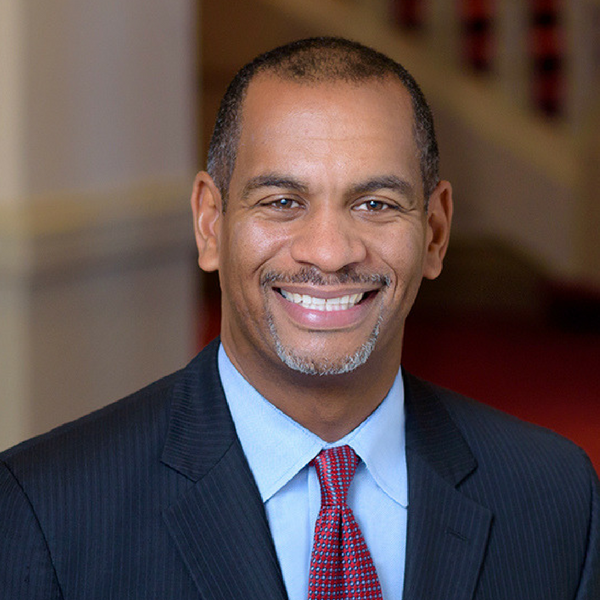
Michael Coffey
Senior Program Officer, The Greater Cincinnati Foundation
(New member for 2020-2022 term.)

Shawn Escoffery
Executive Director, Roy and Patricia Disney Family Foundation
(Renewed for 2020-2022 term.)
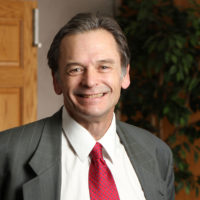
Don Hickman, Vice Chair
Vice President for Community and Workforce Development, Initiative Foundation
(Renewed for 2020-2022 term. Board officer position is for one year.)
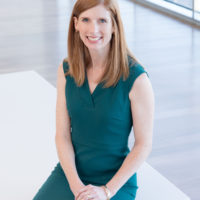
Elizabeth Love, SecretarySenior Program Officer, Houston Endowment
(Renewed for 2020-2022 term. Board officer position is for one year.)
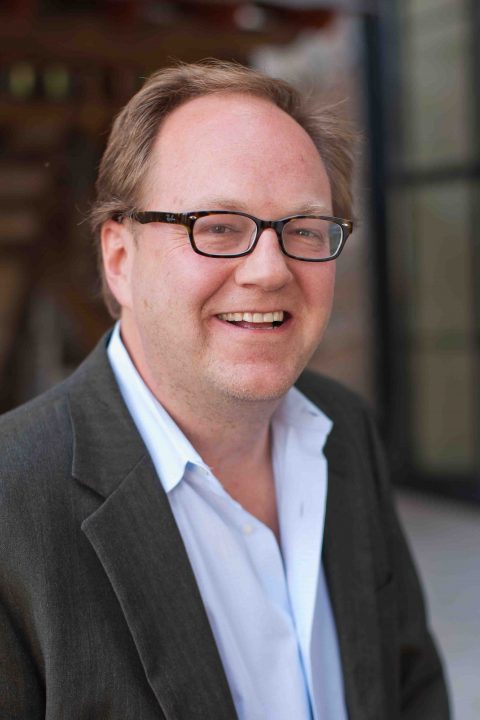
Eric Muschler
Program Officer, McKnight Foundation
(New member for 2020-2022 term.)
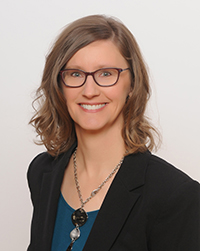
Karla Twedt-Ball
Senior Vice President, Greater Cedar Rapids Community Foundation
(New member for 2020-2022 term.)
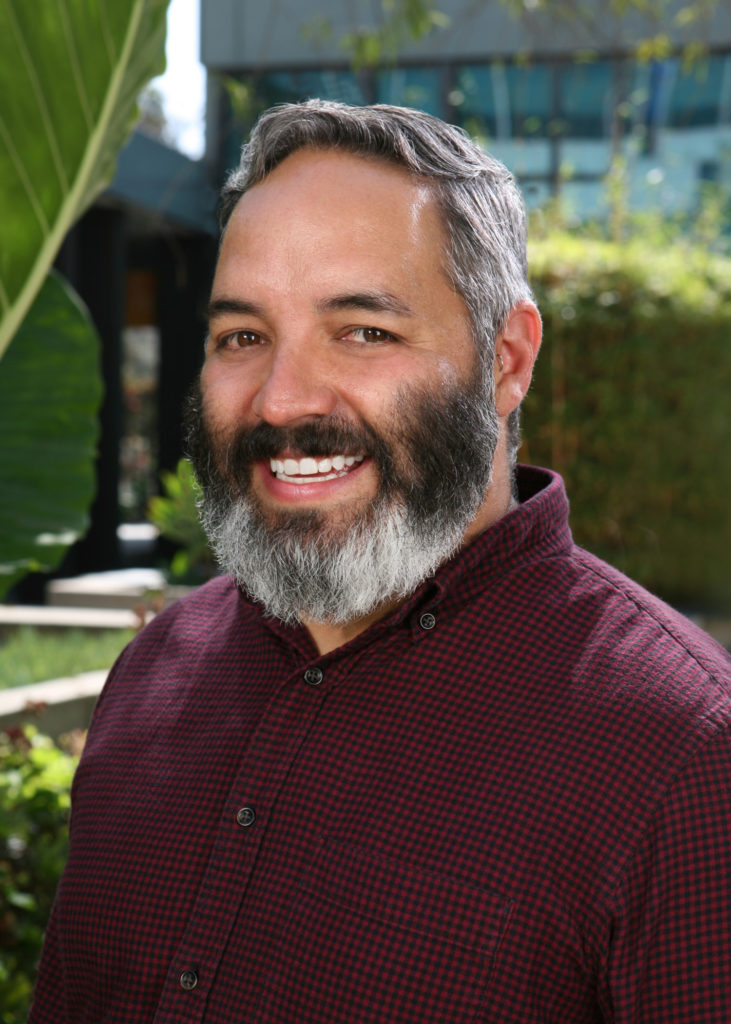
New TFN Board Chairman
Craig Martinez, Chairman
Program Officer, The California Endowment
We are thrilled to share the news that Craig Martinez was elected to serve a two-year term as chairman of TFN's Board of Directors. He was first elected to the TFN Board of Directors in 2015 and is currently co-chair of TFN's Smart Growth California Steering Committee.
He is a proud alum of TFN's equity-focused PLACES Fellowship's 2013 cohort, and is the first PLACES alum to serve as chairperson of the TFN Board of Directors!
(We should also note that Craig was one of the co-chairs of our 2020 Annual Conference in San Diego. Although our conference was ultimately cancelled, it's only fitting we acknowledge the hard work that went into the planning of the conference.)
Remaining Board Members
TFN Board of Directors whose terms were not up for renewal this year are:
C.J. Eisenbarth Hager
Director, Healthy Communities, Vitalyst Health Foundation
Michelle Knapik
President, Emily Hall Tremaine Foundation
Scot Spencer
Associate Director, Local Policy, The Annie E. Casey Foundation
Kellie Terry
Program Officer for Sustainable Environments, Surdna Foundation
Continuity of our board and its duties is an essential component in ensuring our work moves forward as seamlessly as possible, especially as we navigate the days and weeks ahead.
We sent virtual ballots to the primary contacts for organizations that are members in good standing as of March 31, 2020. (For more information about the annual election of TFN directors, please see the Election Information Guide.)
Thank you everyone who took the time to cast their ballots.
And thank you to the TFN Board of Directors for their ongoing support of the network and commitment to creating communities that are equitable, sustainable and prosperous.
CANCELLED: TFN's 2020 Annual Conference
By Pat Smith, TFN President and CEO
We regret to share the news that we have cancelled TFN’s 2020 Annual Conference, which was to take place March 16-18 in San Diego.
As we continued to monitor reports about the spread of the novel coronavirus over the past weekend, including the uptick of cases on the west coast and advisories for those in at-risk demographics to limit travel, it became clear that we could not in good conscience move forward with such a large-scale event.
This was a difficult decision to make, especially in light of the considerable investment of time, talent and resources that we — along with our session designers, speakers and other partners — have committed to the planning of our annual conference as well as the PLACES Fellowship Alumni Gathering and other pre- and post-conference events.
In an abundance of caution, and in consultation with our staff and TFN Board of Directors, we made this decision based on our commitment to keep the health and safety of our attendees, partners and TFN team a topmost priority. We also heard and took seriously concerns from those who were not primarily worried about the risk to their personal health, but feared that attending such a large event may increase their risk of exposing loved ones and others in their communities to the virus.
As an organization committed to equity and economic inclusion, we also considered the financial impacts our cancellation would have on vendors, contractors and small businesses who were counting on our business. But we also fielded concerns from several vendors who expressed reluctance in providing services for an event that would attract hundreds of travelers from across the U.S. and Canada.
We took all of this into account before making what we ultimately felt was the right decision for our network.
Deepest Gratitude
TFN takes tremendous pride in organizing a conference that brings together leaders from across the sector to learn and share knowledge — but it has also been, over the past two decades, an event that brings together friends and colleagues that have forged deep bonds over a shared commitment to creating communities that are sustainable, prosperous and just.
I want to share our profound thanks to our co-chairs, Craig Martinez of The California Endowment, Kellie Terry of the Surdna Foundation and Lydia Van Note of The San Diego Foundation for their incredible support throughout the year-long process of planning the conference. Also deserving of the deepest gratitude: the many sponsors, speakers, session designers, program partners and others, including the TFN board, who have worked so hard to put together what would have surely been an inspiring and enlightening event in San Diego.
Finally, I want to acknowledge the hard work and dedication of the TFN team whose resourcefulness, diligence and grace under pressure never ceases to amaze me.
Next Steps
In the coming days, our team will be looking at ways to re-think conference programming as virtual events or other learning opportunities. Please reach out to Lesmarie Nicholson if you have questions about your session or event.
For those who have already paid registration fees, we will be providing refunds upon request. We ask that you consider your fee a donation to TFN in light of the considerable expenses already committed to planning the conference and securing our venue. (Please reach out to Yleinia Jobe with any questions about registration fees.)
We encourage you to reach out to our venue, the US Grant, to cancel your hotel reservations as soon as possible. The hotel requires 72-hour notice before your arrival day to avoid cancellation fees.
Putting Equity First
Even though we are truly saddened to cancel #TFNSanDiego, we are aware that the potential health, economic and social impacts of the coronavirus on our communities far outweigh any impacts on an annual conference.
We also take heart in the knowledge that TFN’s overriding mission is far greater than any one event.
We will be working to provide resources and other learning opportunities for funders as they and their organizations work to formulate strategies that will support those directly or indirectly impacted by coronavirus. As funders with close ties to the people and places you support and serve, we encourage you to be mindful of the important role philanthropy plays in ensuring responses to the coronavirus pandemic align with our values.
We know that low-income communities and communities of color will almost certainly face a disproportionate impact, including workers who rely on hourly wages or gig-economy jobs that do not have the safety-net resources of paid sick days and other employer benefits. And we have seen reports of xenophobic and racist attacks targeting Asians and Asian-Americans.
Read on for resources for funders that we hope will be helpful in navigating the many implications the pandemic will have for the people and places we care about, while keeping the values of equity, inclusion and justice front and center.
Again, our deepest appreciation to everyone for all of the hard work and long hours that they’ve put into the planning of our conference.
We wish everyone health and well-being today and in the days ahead.
Thank You to our Sponsors!
Even though we have called off our 2020 Annual Conference, we would like to acknowledge and thank our sponsors for their support:
Amalgamated Bank
The California Endowment
Funders for Housing and Opportunity
Gifford Foundation
The Kresge Foundation
Neighborworks America
William Penn Foundation
The San Diego Foundation
TFN Board of Directors
Resources for Funders
Please read, and feel free to share, these resources. We will continue to compile and distribute information in the days ahead via the TFN blog and other platforms. (If you have additional resources to share, please reach out to TFN Communications Director Tere Figueras Negrete)
Asian Americans/Pacific Islanders in Philanthropy
• AAPIP statement on how funders can combat xenophobia and other calls to action amid COVID-19 concerns.
The California Endowment
• Get the Facts: Novel Coronavirus 19 Resources for Partners (includes bilingual fact sheets and posters in both English and Spanish.)
Center for Disaster Philanthropy
• Overview and daily updates on COVID-19
• CDP's critical needs list for how organizations wanting to respond can best proceed.
• CDP also has created a COVID-19 Response Fund that provides an opportunity for donors to meet the ongoing and ever-expanding challenges presented by this virus. CDP has also created a list of suggestions for foundations to consider related to disaster giving.
• Webinar recording: CDP's COVID-19 Coronavirus: How Philanthropy Can Respond
• Webinar recording: CDP's Complex Humanitarian Emergencies: Philanthropy’s Role in Recovery
• CDP web page: Pandemics and Infectious Diseases
Council on Foundations
• Coronavirus resource page.
Robert Wood Johnson Foundation
• Read this excellent Op-Ed in the Washington Post by RWJF's president and chief executive, Richard E. Besser (who is also a physician): As coronavirus spreads, the bill for our public health failures is due: "Our nation’s predicament today is both tragic, because so many people will likely suffer, and maddening, because it didn’t have to be this way."
World Health Organization
• Getting Your Workplace Ready for COVID-19
Beyond the breakout sessions: #TFNSanDiego mobile workshops offer a chance to explore & engage
By TFN Staff
TFN’s annual conferences offer insight on a range of issues at the intersection of equity, environment and economic opportunity — and not just within the confines of the conference venue. Our mobile workshops offer a chance to explore and engage with the communities in our conference city. Our San Diego Mobile Workshops will delve into topics such as gentrification, environmental justice, immigration, transit and growth and development. TFN's 2020 Annual Conference: Bridge the Divide, takes place March 16-18.
All mobile workshops take place Tuesday, March 17. Read below for more information on this year's offerings. To learn more about our conference, including an updated agenda, click here.Registration for mobile workshops will be available on site during the conference. Be sure to sign up early, as space is limited!
Food for Power
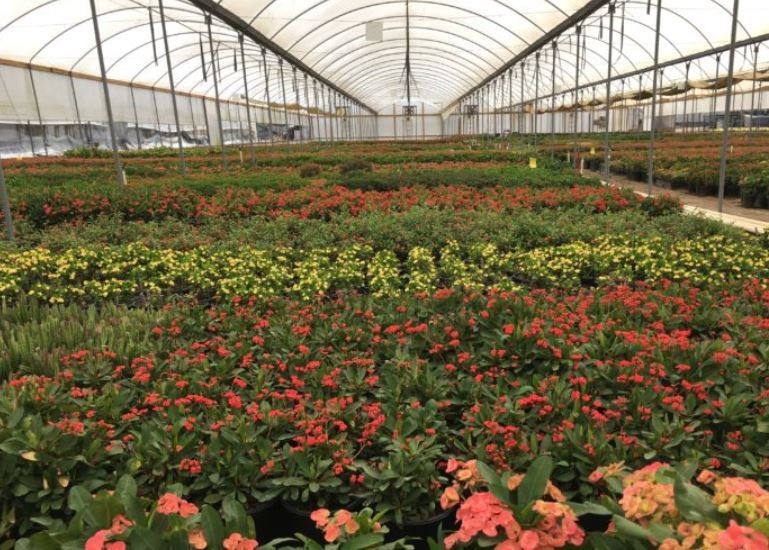
Our Food for Power mobile workshop will explore ways urban agriculture and food systems can fight isolation, displacement and gentrification and help communities become more empowered, vibrant and healthy. One in every seven San Diegans is food insecure. This figure includes the one in five children in the county that are food insecure. The data is abundant on the long-term effects of lacking nutritious food, especially for young and growing minds and bodies. Growing inequity and food deserts limit the financial resources and access families have to healthy foods. In a region that is one of the nation’s top refugee resettlement destinations and with a high percent of immigrant families and communities from throughout the world, food takes on an important cultural and social significance that can underlie New Americans’ transitions to life in this country. This site visit will take participants through a fascinating, and tasty, tour of the food access activism in this region.
The Border, Climate Change, and People on the Move
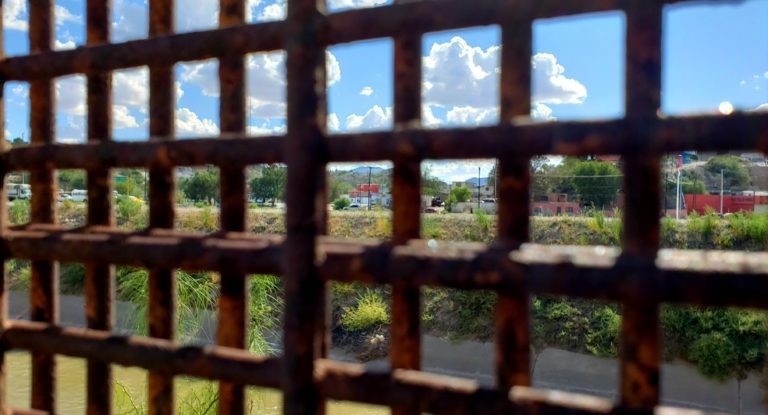
U.S. federal policy has always impacted the San Diego-Tijuana border region. More recently, larger groups of migrants, problematic U.S. immigration policy and a lack of permanent infrastructure for responding to how people move through this dynamic region, have fueled a harmful narrative. This narrative serves the rhetoric around a border wall that threatens the interdependence of border communities and critical habitats in a biodiversity hotspot. See the border — explore the connections between climate change, ecological resiliency and immigration. Hear from experts on extirpation and extinction pressures to native flora and fauna. Learn about the migrant experience and what the changing legal landscape means for people on the move. Learn why, no matter where you live, the border matters to you.
Please note: In addition to this mobile workshop, TFN is presenting a post-conference tour in partnership with the International Community Foundation and Hispanics in Philanthropy that will take funders across the U.S.-Mexico border on Wednesday, March 18. There is a $100 fee for the Post-conference Tour: U.S.-Mexico Border, so be sure to indicate if you plan to attend when you register for conference.
The Rising Seas & San Diego Bay
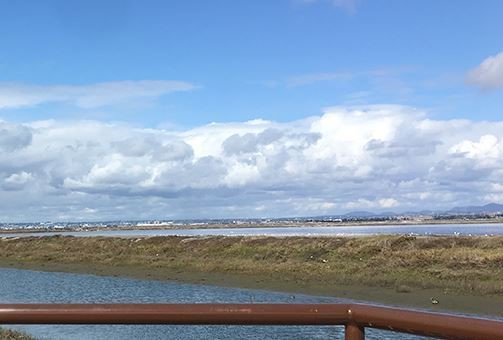
Within a mere 12-mile span, San Diego Bay’s waterfront boundaries are home to five independent city jurisdictions and some of the region’s most important military installations. These bayside communities are also facing the twin pressures of rising seas and massive growth and development. Join a multi-modal site visit that will take you around San Diego Bay and through communities grappling with the implications and politics of managed retreat in response to rising sea levels and coastal flooding, as well as the potential impacts of a large-scale waterfront development that would include a 1,600-room hotel and 400,000-square-foot convention center.
Environmental Justice, Gentrification & Reclaiming Communities
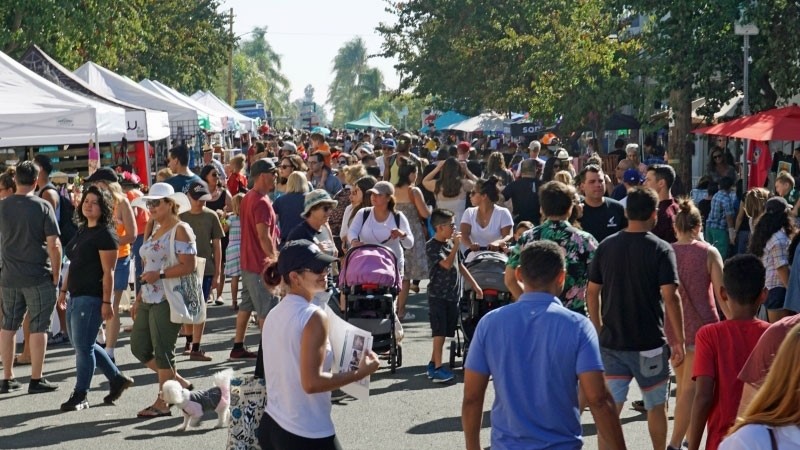
San Diego County is home to communities that are among the most vulnerable to pollution in the state. This mobile workshop will take us through two such communities, Barrio Logan and National City, both examples of how low-income communities and communities of color are disproportionately affected by poorly conceived, and often racist, planning approaches. These communities equally exemplify the power of organizing for environmental justice — efforts that celebrate a vibrant cultural identity and achieve healthy, art-filled, reclaimed communities. We’ll experience the highlights of these communities, as well as learn about the impacts of industrial zoning in densely residential neighborhoods and transit measures slated for the 2020 ballot. We’ll also examine how the forces of gentrification are changing these long-standing environmental justice communities.
Housing, Transit & Inclusive Economies
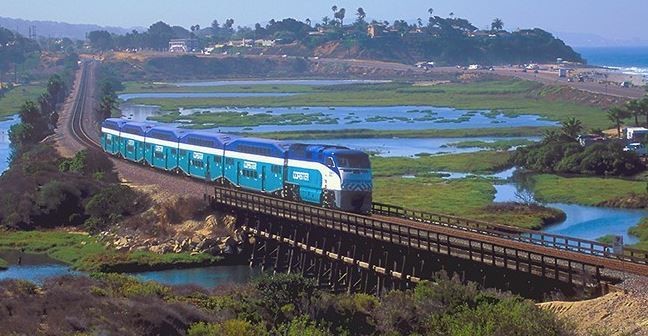
According to The Housing and Transportation Affordability Index San Diego, moderate-income families pay an average of 67 percent of their household income towards housing and transportation expenses alone. This rate rises sharply for low-income San Diego households. The 2020 ballot may likely contain both transit and housing measures that can radically change the region’s capacity to respond to a growing housing crisis and need to build a future-facing transit system. This mobile workshop will take participants through rapidly gentrifying communities that are currently home to much of the county’s immigrant and refugee communities, including City Heights and El Cajon in East County. We will explore how housing and transit efforts are trying to better connect where people reside and work — and how inclusive economic growth strategies connect, or don’t, to how San Diegans live and move through the region.

Registration & Lodging
TFN’s annual conferences bring together leaders in philanthropy from across the sector who are committed to creating communities that are sustainable, prosperous and equitable — and who are looking to grow their network and deepen their professional relationships.
Join us to learn ways to increase the impact of your grantmaking and connect with a network of national and place-based funders and leading practitioners.
Our conference will offer thought-provoking speakers, breakout sessions and mobile workshops. Registration is open to staff, directors, and trustees of all grantmaking organizations.
(Discounts available for members of San Diego Grantmakers, Southern California Grantmakers and Northern California Grantmakers.)
TFN’s 2020 Annual Conference takes place March 16-18 at the US Grant Hotel in downtown San Diego.
The landmark hotel is nestled in the city’s vibrant Gaslamp Quarter, known for its rich Victorian architecture and history. (And there are several local attractions and landmarks to enjoy nearby.) Be sure to book your room early in order to secure our TFN Annual Conference Rate.
Stay Tuned!
Please be sure to check out our conference webpage for more information on registration, events, and updates on speakers and sessions, as well as updates on pre- and post-conference events for those who may want to lengthen their stay with us in San Diego. (And be sure to follow us on Twitter @funders_network for more #TFNSanDiego news.)

Inclusive Economies: The Road to Good Jobs and Quality Work
By Sara McCarthy is Director of Communications at the Fund for Our Economic Future
The work of TFN’s new Inclusive Economies working group began in earnest with the group’s November 2019 inaugural annual meeting in Cleveland. This is the third in a series of guest-authored posts that reflect on key meeting sessions and topics. (Click to see the meeting agenda and read speaker bios.)
Entangled with concerns about automation and job scarcity, few topics elicit more debate than “the future of work.” For Inclusive Economies' panel on the topic, TFN asked Heidi Shierholz, senior economist at the Economic Policy Institute in Washington, D.C., to lay the groundwork for an evidence-informed discussion of the trends shaping the future employment environment, and their implications for marginalized workers. Shierholz’s remarks prompted spirited exchange among fellow panelists, who brought a wealth of policy, research, workforce, capital deployment, advocacy, and power-building expertise to bear on the question of what it will take to create well-paid, high-quality work for all. Here, Sara McCarthy of the Fund for Our Economic Future shares the top-line takeaways from the discussion.
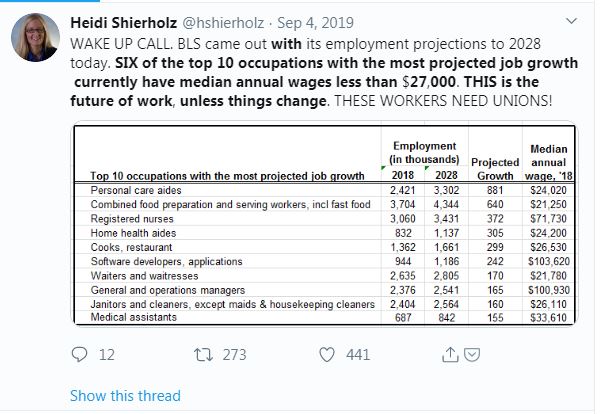
This tweet, originally posted after the Bureau of Labor Statistics released its 10-year employment projections last September, neatly encapsulated economist Heidi Shierholz’s central message to the funders gathered to hear from her and other panelists during their session at the Inclusive Economies inaugural meeting. Contrary to fears, the biggest threat to working people is not that automation and artificial intelligence will reduce the overall number of available jobs. Throughout history, jobs lost to technological change have been offset by the rise of new jobs. Rather, Shierholz says, the real threat to workers, especially to women and people of color, is that so many of the jobs available in the future will pay so little.
This assessment set the stage for a lively and occasionally heated discussion of how this national trend is playing out now in local communities. Panelists’ concerns included the validity of the employment data and the effects of automation on individual people; the push for entrepreneurship versus employment (and the detriments of that); the relationship between employer and employee; and the barriers that exist to quality work.
A consistently unifying theme was the centrality of race in workforce discussions. As panelist Caryn York, CEO of Job Opportunities Task Force in Baltimore, asserted, “The workforce is not monolithic. Race and place have to be front and center when we deal with these challenges.”
Another point of agreement: Programmatic responses won’t be enough to reverse decades of declining wages and erosion of worker supports. Meaningful change in the workforce arena will require policy change.
For Shierholz, this means a multi-pronged approach to ensure worker well-being, including a stronger safety net and a good jobs agenda based around support of unionization, increasing the minimum wage, and paid time off, as well as strong enforcement of these policies.
Where does philanthropy fit in? The panelists offered several concrete suggestions during the session, moderated by Emily Garr Pacetti, vice president and community affairs officer for the Federal Reserve Bank of Cleveland.
Fund research. This is hugely important when it comes to policy work, York said. Panelist Carmen Rojas, founder of The Workers Lab in Oakland, Calif. (and incoming president and CEO of the Marguerite Casey Foundation), added that funders often shy away from policy work that has a value statement attached to it. There is confusion that this is inherently partisan, she said. “And it’s not. As funders in this space, we need to keep pushing.”
Trust more. “We see capital markets consistently fail low-income communities and communities of color,” said Michael Jeans, president of Growth Opportunity Partners in Cleveland, who also participated on the panel. “Let’s create mechanisms where we aren’t telling people we trust them, we simply trust them. … Are we giving the capital to the people who look like these communities and people who care about these communities?”
Reframe the narrative on working people. “Is the support of entrepreneurship by philanthropy contributing to the dilution of worker power?” one audience member asked. “We have all kinds of jobs. We need to make sure those jobs are good,” Rojas said. “We look down on working people in this country. That is so damaging. We need to make the distinction between employment and entrepreneurship, and make the distinction about what we want from those.”
About the Author
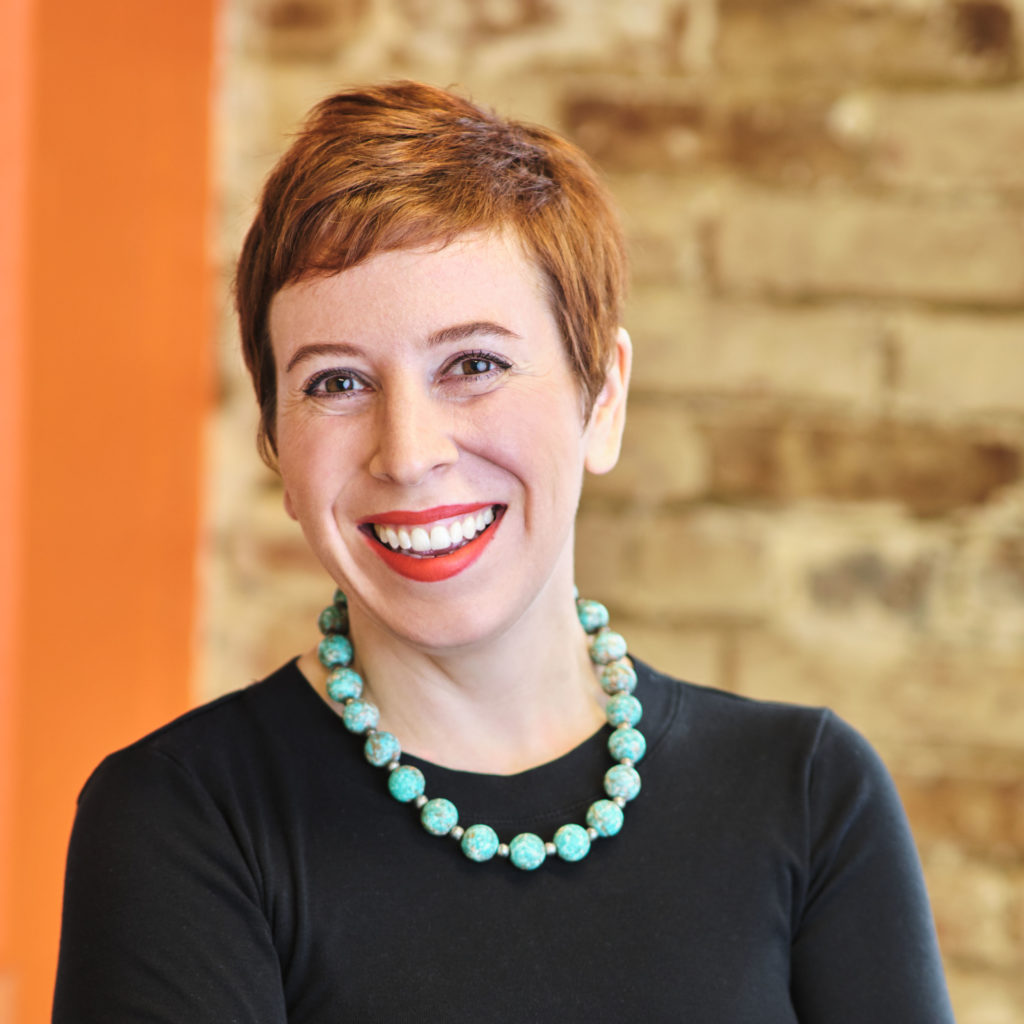
Sara McCarthy is Director of Communications at the Fund for Our Economic Future, where she leads the Fund’s awareness building efforts, overseeing the strategic communications of a wide variety of Fund initiatives, including The Two Tomorrows, The Paradox Prize and job hubs. Sara grew up in Warren, Ohio, and is proud to be a part of its manufacturing heritage, having worked at a now-shuttered steel mill while pursuing a bachelor's degree from John Carroll University. Sara spent several years as a business journalist, first in Cleveland then in New York, before earning a master’s degree in public service at DePaul University in Chicago. She spent a short time slinging pies at a bakery before returning to Northeast Ohio to work for the Fund for Our Economic Future.
More in this Series
You can read additional takeaways from the inaugural Inclusive Economies meeting in this blog post series:
Treye Johnson of the Federal Reserve Bank of Cleveland: “Inclusive Economies: Awareness building to more thoughtful action.”
Cari Morales, National Urban Fellow at the Cleveland Foundation: Inclusive Economies: Investment, displacement & engagement
Inclusive Economies: Investment, displacement & engagement
By Cari Morales, National Urban Fellow at the Cleveland Foundation
The work of TFN’s new Inclusive Economies working group began in earnest with the group’s November 2019 inaugural annual meeting in Cleveland. This is the second in a series of guest-authored posts that reflect on key meeting sessions and topics. (Click to see the meeting agenda and read speaker bios.)
New investment can be deeply destabilizing to neighborhoods of color, causing displacement that disrupts the economic well-being of residents and businesses, and the cultural fabric of the community as a whole. Inclusive Economies tackled this issue in a panel inspired by “Turning the Corner: Monitoring Neighborhood Change to Prevent Displacement,” a multi-city study of displacement led by the Urban Institute incubated by TFN’s Federal Reserve-Philanthropy Initiative. The Kresge Foundation’s Wendy Lewis Jackson and Bill Taft of the Local Initiatives Support Corporation (LISC) joined the study’s lead author, Kathy Pettit, to discuss how inclusive revitalization strategies are shaping more equitable neighborhood change in communities across the United States. We asked Caracciola (Cari) Morales, a National Urban Fellow at the Cleveland Foundation, to share the session’s most resonant messages.
Having grown up in the inner cities of the Midwest and pursued a career in community development, first at a community development financial institution and now in philanthropy, I’ve engaged with community change from multiple standpoints. Even so, I still wonder how development in under-resourced and -invested communities of color so often goes so wrong. The Inclusive Economies panel on neighborhood change suggested part of the answer may lie in the tendency to prioritize novelty over the familiar.
As in other sectors, innovation has become a touchstone of philanthropy. Yet panelists’ prescriptions for inclusive revitalization were rooted in enduring tenets of community development. A key lesson of the Urban Institute’s recent study of neighborhood displacement was the fundamental importance of community voice in preventing displacement, particularly in neighborhoods where signs of impending change aren’t easily detected by conventional metrics. This points funders committed to equitable revitalization toward investment in basic, grassroots capacity building that strengthens and elevates residents’ and business owners’ place at the table. Inclusive revitalization requires involvement from a full array of stakeholders, but the group that matters most are the neighbors and residents who know their communities intimately, and are present for the long haul.

Turning the Corner: Monitoring Neighborhood Change to Prevent Displacement
The study also underscored the role of strong neighborhood coalitions in shaping inclusive change, affirming the growing call for funder investment in local community organizing and relationship-building across traditional silos. In the “Turning the Corner” study, communities came together around shared data and metrics for monitoring neighborhood change, which empowered residents to engage meaningfully with city decision-makers on planning and policy issues. Similarly, national LISC’s new economic development framework emphasizes direct linkages between local community actors and regional economic and workforce development agencies, and creating a table unified around local priorities.
The panel discussion also reinforced a point made throughout the convening about the need for a steady focus on systems change. As Wendy Jackson put it, “If philanthropy continues to invest in communities but does not change systems, then that’s just burnt money.” If we’re honest about the greatest adverse impacts on communities of color (redlining being a prime example), we must also be intentional about how we as funders use our power to reform harmful systems.
Finally, Wendy’s observation that cultural competency is key to the advancement of economic development spoke to a core principle of place-based racial equity and inclusion: How we as funders show up in communities is as important as the strategies we fund. As the saying goes, change happens at the speed of trust. As professionals in the field, it’s incumbent upon us to understand, respect, and celebrate the communities we serve. With so much at stake, funders must be the change we want to see in the world.
About the Author
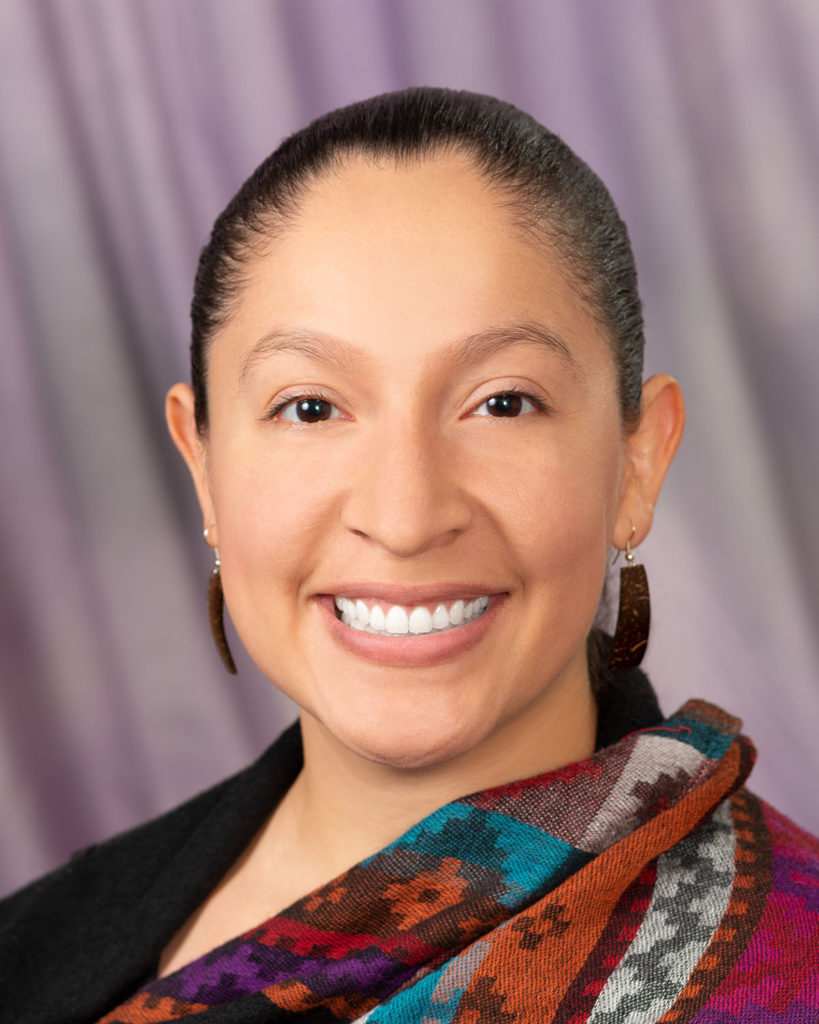
Cari Morales is a National Urban Fellow at the Cleveland Foundation with over 14 years of experience in the non-profit sector. Her passion for justice and change have led her to Indianapolis LISC, where she learned to connect people, resources and opportunities to improve communities’ quality of life, and to Pinellas County, Fla., where she organized communities of faith to implement policy changes in dental care, education and the juvenile justice system. Proud of her Puerto Rican and Nicaraguan roots, Cari became involved with the Latinx community in high school, and worked strategically to advocate for immigration rights during college at Indiana University, where she was a co-founder of D.R.E.A.M. IU.
More in this Series
You can read additional takeaways from the inaugural Inclusive Economies meeting in this blog post by Treye Johnson of the Federal Reserve Bank of Cleveland, "Inclusive Economies: Awareness building to more thoughtful action."
Inclusive Economies: Awareness building to more thoughtful action
By Treye Johnson, Federal Reserve Bank of Cleveland
The work of TFN’s new Inclusive Economies working group began in earnest with the group’s November 2019 inaugural annual meeting in Cleveland. This is the first in a series of guest-authored posts that reflect on key meeting sessions and topics. (Click to see the meeting agenda and read speaker bios.)
Founded on the principle of racial equity, the Inclusive Economies working group is a forum for funders to learn from peer organizations’ experience with race-based initiatives and — importantly examine
— their own relationship to race. Through a workshop led by ThirdSpace Action Lab's Evelyn Burnett and Mordecai Cargill on The REI Impact Continuum, meeting participants got a firsthand experience with a funder-supported initiative to build racial awareness in Northeast Ohio, and were challenged to articulate their personal commitment to advancing racially equitable systems change in their own communities. In this post, Treye Johnson, regional outreach manager at the Federal Reserve Bank of Cleveland, reflects on the nature of systems change, and what it demands of communities and the people and institutions that lead them.
As many communities — Northeast Ohio included — embark on the journey to address their own deep-rooted, race-based disparities, their efforts immediately meet a host of hurdles. Given the complex nature and sheer enormity of the impacts of structural racism, simply deciding where to start and what the work should look like can feel overwhelming. Further complicating the issue is the fact every person (and organization) has a different level of understanding of racism and race-based disparities, and varying levels of comfort with talking about them. Just as some are energized by the challenge in front of them, others may feel “tired of having this conversation again for the umpteenth time.” So how might those dedicated to racial equity work orient themselves in a way that addresses these challenges, and countless others not named above?
I believe the answer lies with the theory behind ThirdSpace Action Lab’s REI Impact Continuum (see graphic below; click here for their full PowerPoint): Large-scale problems can be solved through a continuous cycle of action and assessment. Start by assessing the current situation. Then diagnose the problem, identify an intervention, implement the intervention, and check to make sure it worked. But here’s the key: you must keep repeating that process until the desired outcome is achieved.
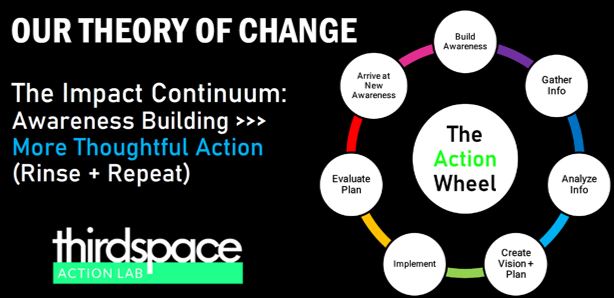
This is not to suggest the Impact Continuum alone is the magic bullet to defeat racism. The problem is too complex; 400+ years of race-based policies and practices cannot be overcome by any single intervention. That means that progress may be slow in some areas and faster in others. It also means that there will be setbacks, and that adjustments will need to be made along the way. But racial equity efforts must acknowledge that this work is long term and make plans accordingly.
So what role might the Federal Reserve System and its Reserve Banks play in the racial equity space? This is the exact question that a recently launched internal Federal Reserve learning community hopes to answer. While each Reserve Bank has its own unique areas of focus, those areas are often ones where race-based disparities are observed—for example, in workforce, education, housing, and small business. As a result, the Reserve Banks could play a vital role in helping to gather data and report on changes in disparities over time. Additionally, Reserve Banks may — and likely will — continue to engage with TFN though the TFN-Federal Reserve Philanthropy Initiative, a long-standing collaboration housed under the IE working group. This partnership, between groups of organizations accustomed to thinking far into the future, could provide valuable and much needed leadership in this space.
About the Author
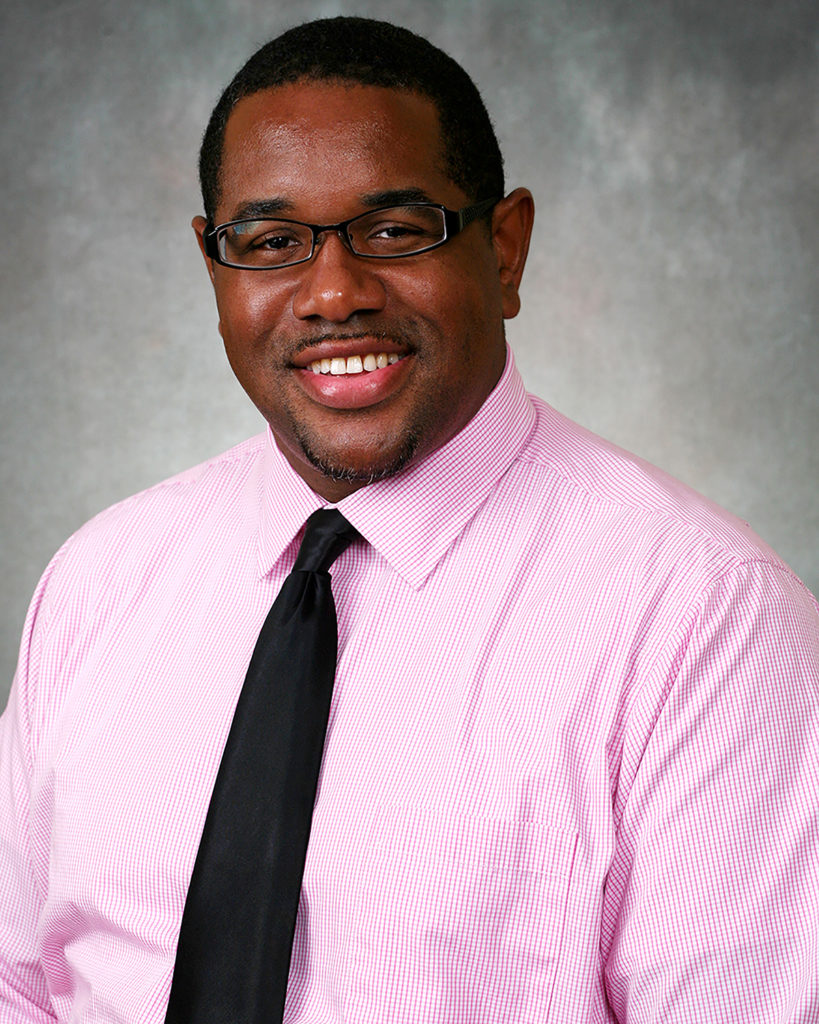
Treye Johnson is a regional outreach manager at the Federal Reserve Bank of Cleveland. From the Bank’s Cleveland office, he works with the community development team on current and emerging economic and community development issues. Previously, Treye was a program officer at Burton D. Morgan Foundation, a philanthropic organization that provides grants to support entrepreneurship and entrepreneurship education throughout Northeast Ohio. The views expressed are those of the author, and do not necessarily those of the Federal Reserve Bank of Cleveland or the Federal Reserve System.
Network, Socialize & 'Eat Here' at #TFNSanDiego
By TFN Staff
TFN's 2020 Annual Conference: Bridge the Divide offers plenty of opportunities to connect, network and socialize — and get a taste of San Diego's local food scene.
Join us at a family-owned brewery nestled in the city's Gaslamp Quarter for our Opening Night Reception and delve even deeper into the area's cuisine at our annual dining extravaganza, Eat Here!, featuring local San Diego vendors.
Read on for more details — and hope to see you at #TFNSanDiego!Please note that there is a $30 fee for our Opening Night Reception and a $50 reception fee for Eat Here!, including food and beverages. (Or $75 for both events.) Be sure to indicate whether you plan on attending these receptions when you register for the Annual Conference.
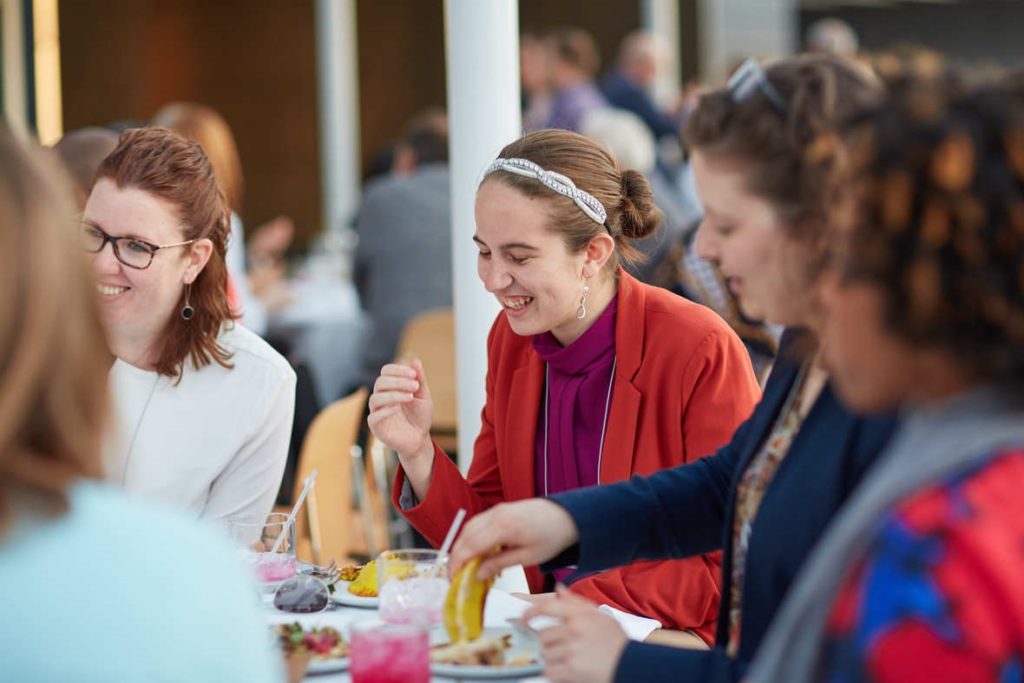
Opening Night Reception
Monday, March 16 | 6 pm
Half-Door Brewing Co., 903 Island Ave., East Village
Join us for our Opening Night Reception at Half-Door Brewing Co., a family-owned Irish-style pub located in a century-old, Victorian-style residence about one block away from Petco Park. The bar brews and serves its own beers and has a wide selection of ales, IPAs, and more. Connect with old friends, make some new ones, and get to know the TFN team at our popular evening networking event. Our Opening Night Reception will feature appetizers plus wine and spirits (in addition to the brewery's acclaimed beer selection). Half-Door Brewing Company is conveniently located in San Diego's Gaslamp Quarter, known for its historic charm, and offers plentiful dining opportunities for those who want to continue the evening with other conference attendees.
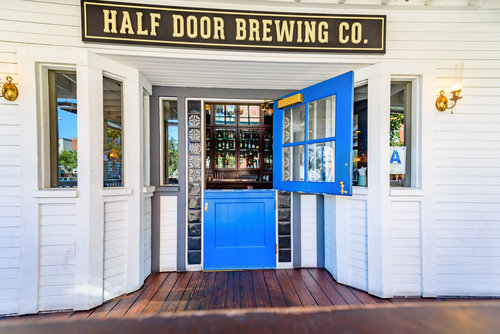
Eat Here! Local Food Showcase
Tuesday, March 17 | 6:30 p.m.
Building 177 (Liberty Station), 2875 Dewey Road
We are delighted to once again feature our annual dining extravaganza, Eat Here! These dinners began in 2003 as an effort to link the issues of sustainable agriculture/food with smart growth, urban renewal, rural development, land use, and transportation.
The dinner will feature local San Diego vendors serving tapas-style dishes — appetizers, entrees, and desserts — representing a diversity of cultures and points of entry into the food system and highlighting locally sourced fare. This year’s event takes place at Building 177, an event space at Liberty Station, formerly a Naval training center that welcomed its first Navy recruits in 1923. The City of San Diego gained ownership of the property in 2000, repurposing the site into a center for commerce, history, and arts. (Check out these historical Liberty Station videos here.)
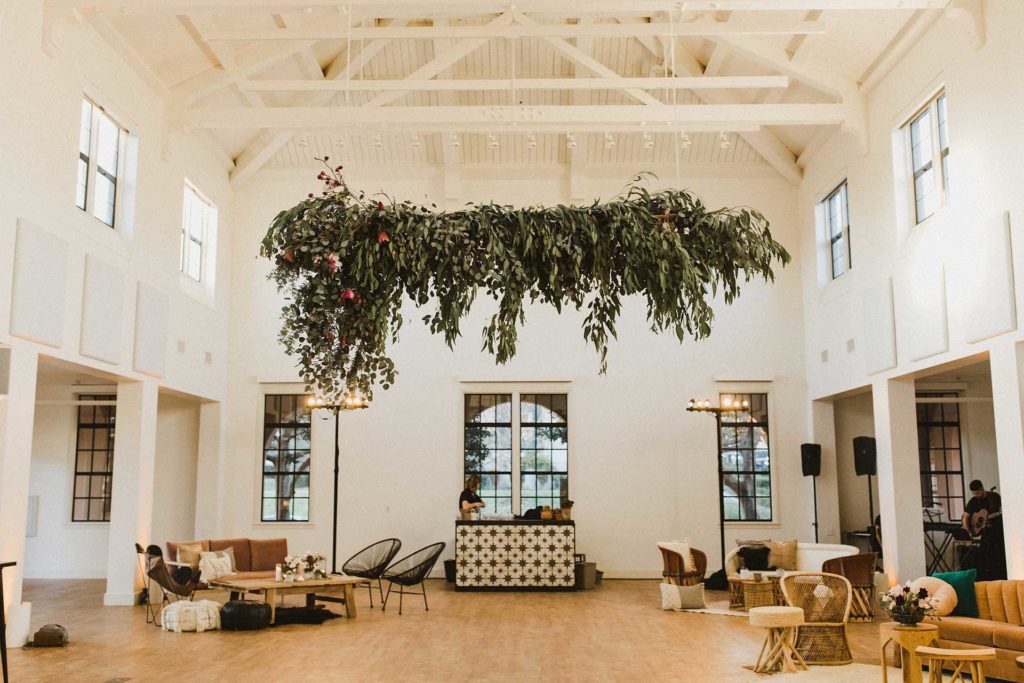
Registration & Lodging
TFN’s annual conferences bring together leaders in philanthropy from across the sector who are committed to creating communities that are sustainable, prosperous and equitable — and who are looking to grow their network and deepen their professional relationships.
Join us to learn ways to increase the impact of your grantmaking and connect with a network of national and place-based funders and leading practitioners.
Our conference will offer thought-provoking speakers, breakout sessions and mobile workshops. Registration is open to staff, directors, and trustees of all grantmaking organizations.
(Discounts available for members of San Diego Grantmakers, Southern California Grantmakers and Northern California Grantmakers.)
TFN’s 2020 Annual Conference takes place March 16-18 at the US Grant Hotel in downtown San Diego.
The landmark hotel is nestled in the city’s vibrant Gaslamp Quarter, known for its rich Victorian architecture and history. (And there are several local attractions and landmarks to enjoy nearby.) Be sure to book your room early in order to secure our TFN Annual Conference Rate.

Stay Tuned!
Please be sure to check out our conference webpage for more information on registration, events, and updates on speakers and sessions, as well as updates on pre- and post-conference events for those who may want to lengthen their stay with us in San Diego. (And be sure to follow us on Twitter @funders_network for more #TFNSanDiego news.)
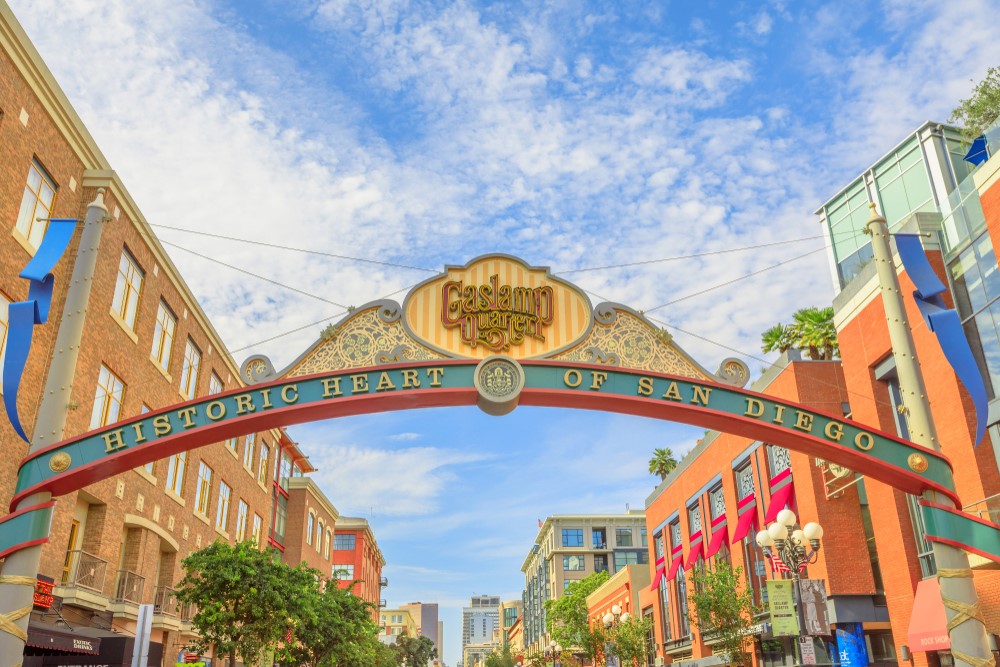
Register today for #TFNSanDiego: Bridge the Divide
By TFN Staff
We recently opened registration for TFN's 2020 Annual Conference: Bridge the Divide, which takes place March 16-18 in San Diego, Calif. Learn more about our signature annual event from this year's co-chairs: Craig Martinez of The California Endowment, Kellie Terry of Surdna, and Lydia Van Note of the San Diego Foundation.
We are thrilled to announce that registration is now open for TFN’s 2020 Annual Conference: Bridge the Divide, which takes place March 16-18 in San Diego, Calif.
TFN’s annual conferences bring together leaders in philanthropy from across North America who are committed to creating communities that are sustainable, prosperous and equitable —and who are looking to grow their network and deepen their understanding of successful strategies.
This year’s conference theme, Bridge the Divide, lifts up philanthropy’s unique potential to bridge differences, foster connections and build partnerships — and address urgent issues such as climate change, economic disparity and racial injustice.
The 2020 Annual Conference will offer a wealth of sessions, speakers and mobile workshops that will challenge and inspire us to discover new ways to overcome obstacles to opportunity, empowerment and justice for all— while seeking solutions and sharing stories that break down silos and move beyond barriers.

With a diverse population, rich cultural heritage and geographic location as a border community, San Diego provides critical context and opportunities to learn as we address pressing issues such as immigration, climate change, affordable housing and more. We’ll hear from diverse and thought-provoking voices as we explore innovative, interdisciplinary work that is making an impact in San Diego and beyond.
This conference also brings plenty of opportunities to network and connect with your peers across the sector. Over these three days, you’ll enjoy great food and conversations at receptions and gatherings — most notably our Eat Here! local food reception that will highlight the culinary offerings of the San Diego community.
Please be sure to check out our conference webpage for more information on registration, events, and updates on speakers and sessions, as well as updates on pre- and post-conference events for those who may want to lengthen their stay with us in San Diego. (And be sure to follow us on Twitter @funders_network.)
Don’t forget to register today!
#TFNSanDiego Co-chairs
Craig Martinez
Program Manager
The California Endowment

Kellie Terry
Program Officer fo Sustainable Environments
Surdna Foundation
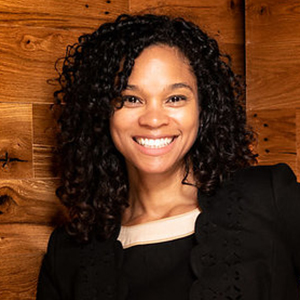
Lydia Van Note
Director, Community Impact, Environment Initiatives
The San Diego Foundation
